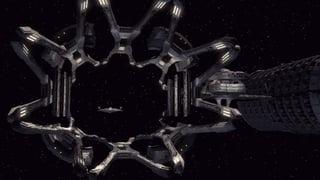In the Enterprise episode "Dead Stop", T'Pol says:
The cerebral cortex is the most sophisticated computer known to exist.
When I first heard this, it took me back a little because of the franchise's propensity to show us notably advanced technology. Swiftly realising that T'Pol's statement was apparently nonetheless accurate, at least at the time of Enterprise, I came to wonder: did this ever change in canon?

© Paramount Pictures and/or CBS Studios — reproduced under Fair Use guidelines.
